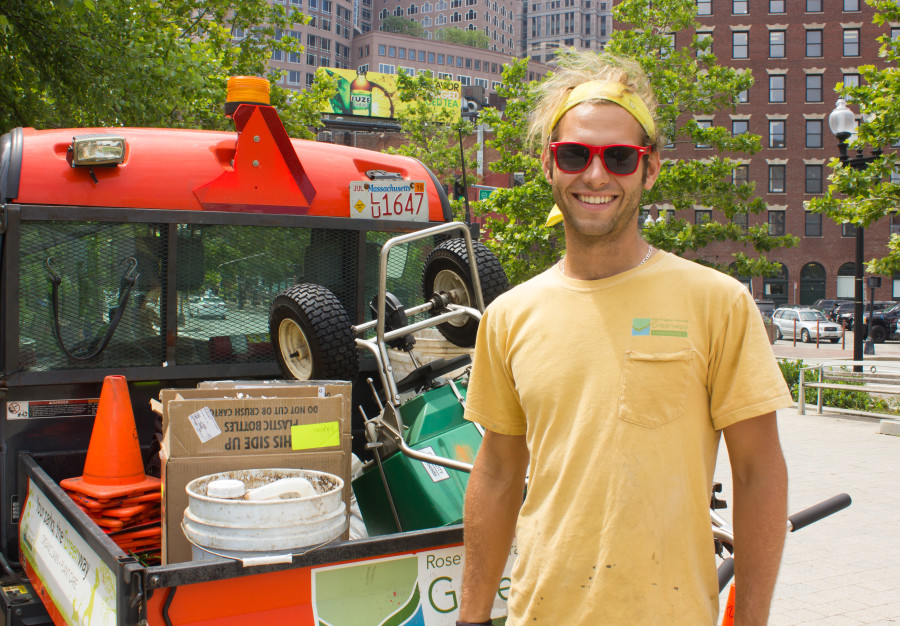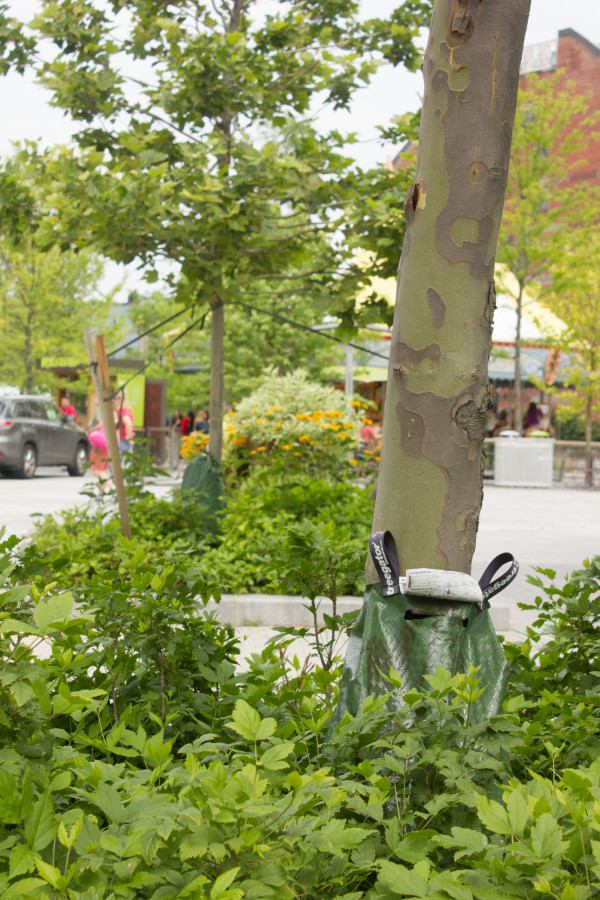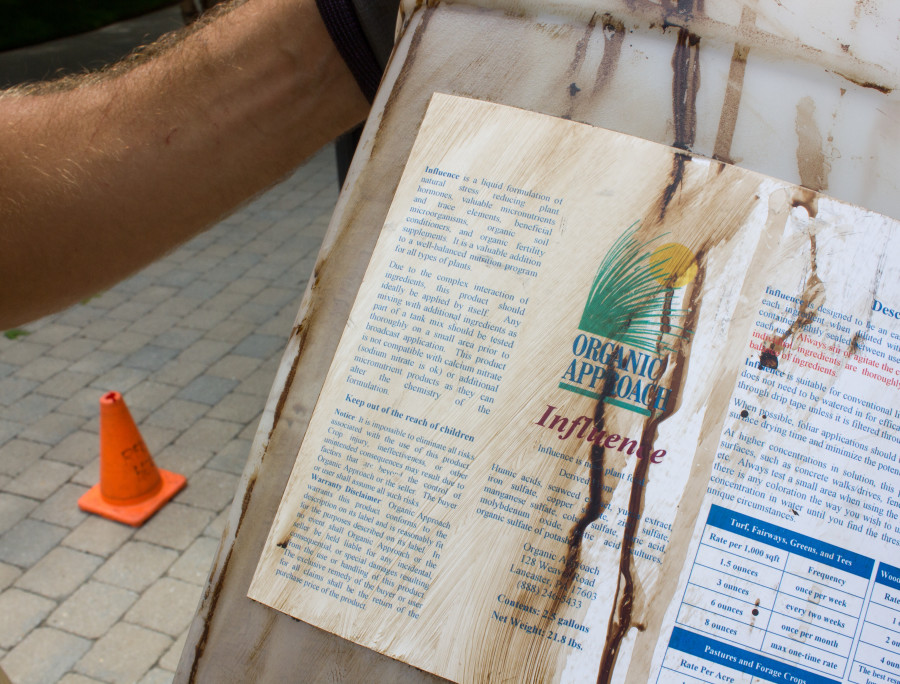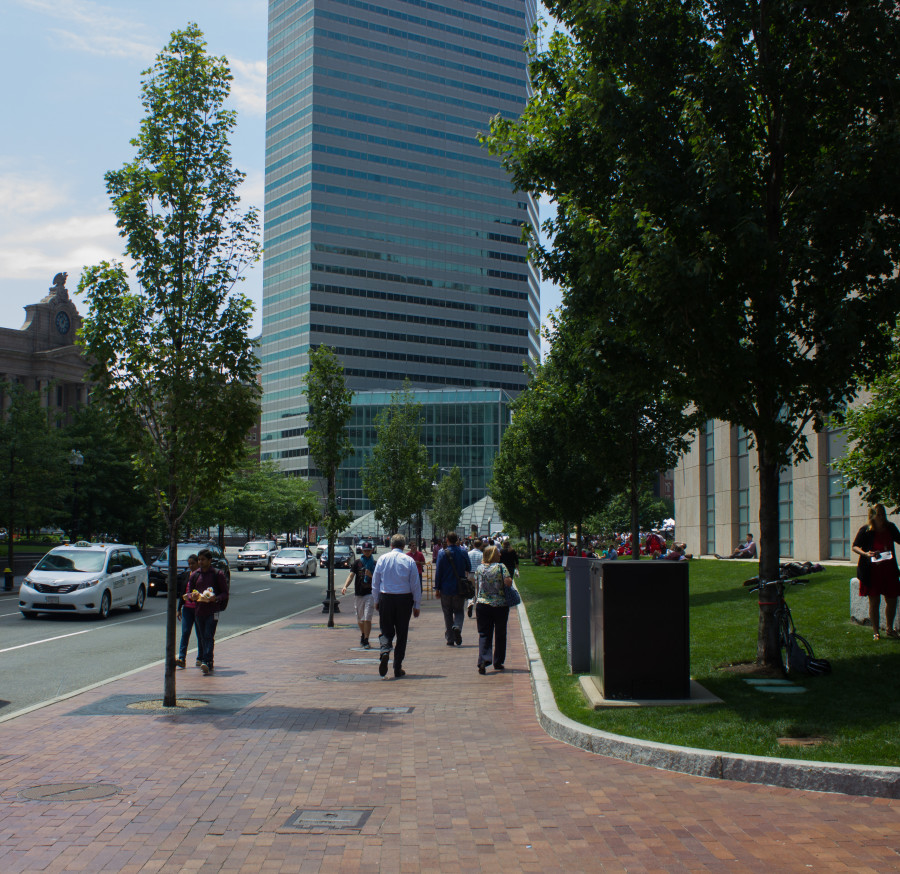Tree ICU with The Horticulture Staff
Our Tree ICU (Intensive Care Unit) was created to help “under performing” trees on The Greenway get back on track and up to the growth and health standards we maintain. In addition, we automatically place newly planted trees in the program to help boost growth after transplantation. About 125 out of the 800 total trees on The Greenway are part of our ICU (Intensive Care Unit) program.
You can spot these trees as you walk along The Greenway by noticing “gator bags” around the base of the trunk. These 25 gallon bags are filled with water and a variety of bio-stimulant. The bottom of the bag is lined with small emitters which allow the liquids to drain slowly into the root system. We also have “ooze tubes” out there for the smaller trees, which support the same concept with a different design.
These bags are extremely helpful for two reasons: First, in order to hand-water a tree with 25 gallons of liquid, it would very time-intensive because there’s so much runoff with that kind of system. Multiply that by 125 trees and our staff wouldn’t have time for other work!
Secondly, the bags allow us to include those biostimulants. In previous years, we used something called “solupacks”, small, corn-based, soluble pouches filled with a powder of seaweeds and other foods for the microorganisms in the soil. This year we’re testing out another product, a mixture of kelp, humic acid, yucca extract, and a bunch of other nutrients. All these elements help stimulate the microorganisms we already have in the soil, thanks to our compost teas and other components of our all-organic program.
The ICU program is designed to boost the trees’ health, not sustain them, so we take trees that are improving off the bags after one year. On the other hand, if the trees are not responding at all, we remove and replace the tree itself. If you take notice of the maple trees along Atlantic Ave in Dewey Square, which remained on tree ICU for three years, they are comparably smaller than their maple counterparts planted in the lawn directly across the sidewalk. They were actually planted at exactly the same time! This shows us that it’s not that the ICU treatment wasn’t effective, but rather factors related to the environment in which the trees themselves are growing have a substantial impact. We then have to dig a little deeper to discover the root cause of what’s happening (wink, wink), but we do know that street trees, which are planted in pits amongst hardscape next to the road, endure a lot more stress because of their environments. Because street trees need extra attention, whether they’re in the ICU program or not, we treat them with an organic liquid fertilizer mix twice a year, as well as the compost tea three times a year.
Many in our industry are very familiar with the concept of gator bags, as they’re a great way to maintain all those trees trying to grow in tree pits. They represent a true call to action to keep our leafy friends healthy and strong. If live away from The Greenway and see one of these bags in front of your favorite local spot, ask them how often they get filled. Many cities don’t have the resources to fill them regularly and could possibly use your support! Even if you help out with one additional treatment per year, its enough to have a positive impact!
We hope our extra attention to trees on The Greenway that need it contributes to happy, healthy trees that you’ll be able to enjoy for years to come!
Thanks to Eric and the Horticulture Staff for the incredible amount of expertise and dedication they bring to The Greenway! If you’d like to learn more about all the science behind what’s growing on The Greenway, consider joining us for a horticulture tour or sign up for the numerous volunteer opportunities happening with the hort staff! And if you want to respond to Eric’s call to action, send us pics of you making a positive impact on your community’s street trees with #GreenwayGators!




